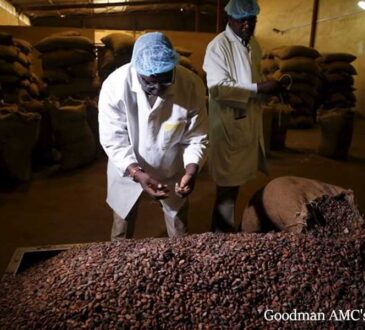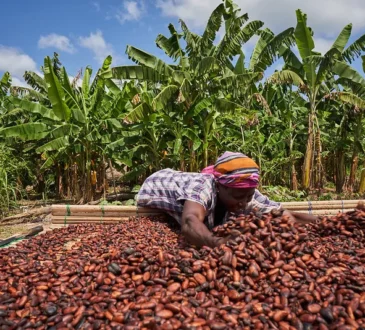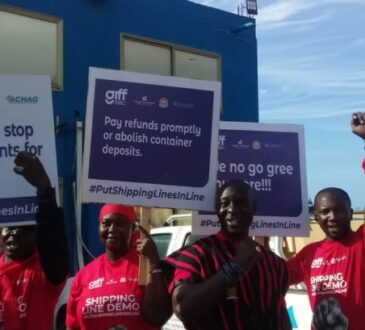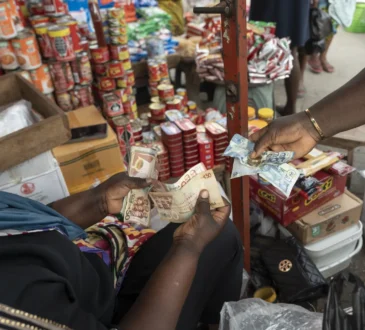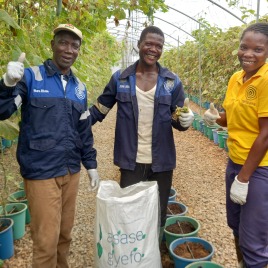
Farmers across the country have had to deal with a very harsh dilemma especially with the hike in prices of farming inputs.
One of such produces creating this limbo is fertiliser. This year alone, some say the prices of inorganic fertiliser has more nearly tripled leaving them with very few options.
A major cause, the ongoing war in Europe between Russia and Ukraine which is affecting key agricultural value chains.
Consequently, prices of compost are at an all-time high. Experts earlier pointed to Covid-19 impacts and its accompanying volatility as the cause.
However, the onset the war between the two counties further disrupted the value chain as Russia took drastic measures in response to international sanctions slapped at them.
Russia urged its fertilizer manufacturers temporarily stop exports of their products amid shipping concerns and later announced more export restrictions to secure sufficient supply for domestic farmers.
This means, global prices surged to record levels.
Geographically, this concern looked like nothing for Ghanaians to be worried about.
But this development, in addition to financial sanctions, and the instability in oil and gas prices are driving up cost leaving a ripple effect.
The World Bank has already indicated that global fertiliser prices had risen 30% by early 2022 on the heels of an 80% hike in 2021.
Crop farmers are feeling the pinch as shortages now threaten their livelihood.
Joseph Wilson Kwashie is a farmer in Ashaiman. He is also secretary to a body of about 107 irrigation farmers in his locality. This means, aside from his, Joseph sees the challenges of each farmer as they come to his desk for attention.
He explained that the past year has been a trying one for his fraternity.
“The shortage has affected us directly because normally you go to buy and you won’t get some. Meanwhile, the price too has tripled. Last year, we bought a bag at around Ghs100 or Ghs120 whereas at the moment, a bag is going for GHS350. Some are going for Ghs450,” he said.
But there is a silver lining in the organic alternative. The development is nudging more farmers towards organic fertlisers.
Joseph says they are cheaper, last longer in the soil and produces more yields without health complications.
“When we apply the organic fertiliser it will stay longer. It will help us get more yield which is very good economically… We definitely want to shift to organic fertiliser.
Inorganic fertiliser depends on the use of natural gas and the mining of nutrients such as phosphorus that will be exhausted by the end of this century at the current pace of extraction.
This only predicts a gloomy outlook for the inorganic nutrients for which reason local farmers need to plan for the long-term.
Asase Gyefo Organic Fertiliser sits at the forefront of providing solution to this problem.
Kelly Ampofo is greenhouse farmer in Accra. He says using a the Asase Gyefo has helped him “save expenses and cost”
“Looking at the yield that we are getting now, comparing that to before, the Asase Gyefo has helped us a lot. You can see the leaves, the fruits, there is a big difference. The taste is very good.”
According to Kelly, he put the organic fertiliser to the test by using just 8 bags to ascertain the results compared to its inorganic counterparts.
“So we tried Asase Gyefo here which was only 8 bags. The growth at this side [organic fertliser] was impressive as compared to that side. So when it started fruiting, even at this side, we have harvested twice. The other side [inorganic fertliser], we have harvested just once,” he explained.
The greenhouse farmer says even through this was not his first organic product, its output is good for business.
Due to its high nutrient value, containing double amounts of Nitrogen and Phosphorus and Potassium, Asase Gyefo makes fruits and vegetables grow faster.
Researcher at the University of Ghana’s Department of Crop Science, Dr Naa Lamle Amissah’s research group is even looking at the bigger picture of how organic compost can improve food security in the future and sees the global crisis as the wake-up call.
“It is happening everywhere in the country. I mean, there’s the difficulty in getting fertilisers, and over dependence on inorganic fertilisers is what is resulting in all this. So we definitely have to start looking at more sustainable ways of getting fertiliser or getting making sure that that lands, our crops are fertilized. And another aspect, one thing that we can look at is organic fertilisers and we need to start developing them that a lot more or paying more attention to that and compost.”
The horticulturist explained that if these alternatives are not explored “the soil is going to suffer.”
“And once the soil suffers, they don’t have enough nutrients, etc, to be able to produce the crops that you’re looking for. Definitely, it will it will affect our yields drastically and we will start seeing signs of those.”
Dr Amissah’s group conducted some studies on the Safisana’s Asase Gyefo Premium Fertiliser.
“We looked at a few vegetables, one being eggplant, we looked at sweet sweet pepper, and we looked at tomatoes. And basically we did a comparative study where we’re looking at that in comparison with the others on the market and their yields, theirs came up tops with you getting up to 20% increase in your yields with their Asase Gyefo Premium compost,” she said.
The researcher see this as a good sign for farmers who are looking to make the switch and or food security as a while.
“It means that I mean if you’re able to use their fertiliser, I mean you definitely will have a lot more nutrients within your soil it enriches the soil water holding capacity of the soil is increased by using compost in general. But if you have compost that is rich in some of these nutrients that will help or aid with production. That definitely is a plus.”
The production of Asase Gyefo Organic Fertiliser is based on the concept of recycling, reuse and recovery of nutrients and goes without the use of natural gas.
According to Senior Manager of Safisana Ghana Kofi Boateng, “we collect waste from the local food markets and local industries and use it as a resource for the production of organic fertiliser.”
“Key ingredients and nutrients such as nitrogen, phosphorus and potassium, are recovered and reused from the waste through a process of composting. The result is a highly nutritive premium organic fertiliser which is good for the soil quality, the plants and the planet.”
Therefore between a global grapple with agricultural supplies and a beckoning food crisis, natural fertilisers may just be the way to go, and Safisana’s product is ready to make that transition a seamless one for farmers.




